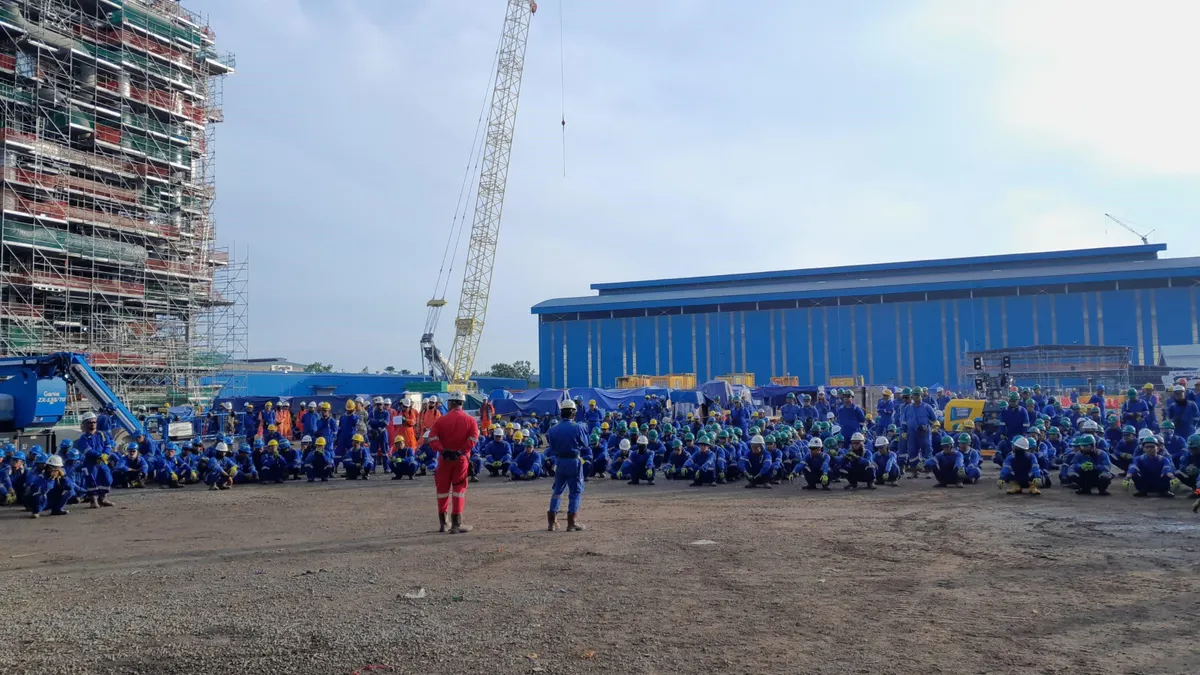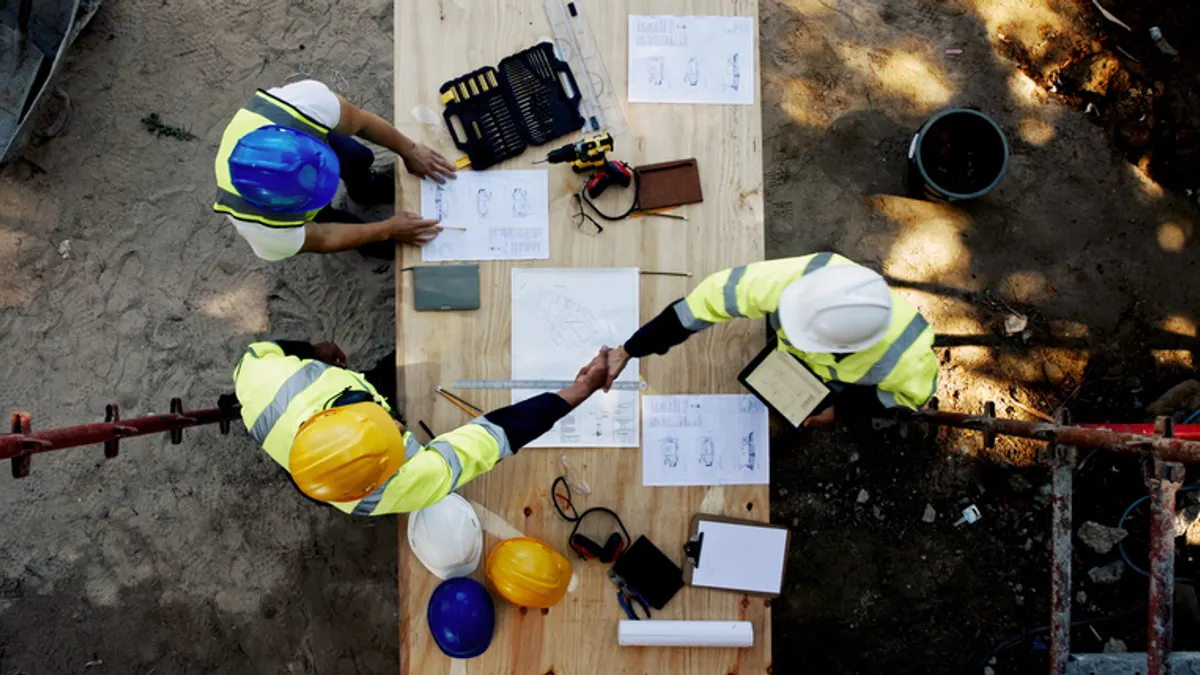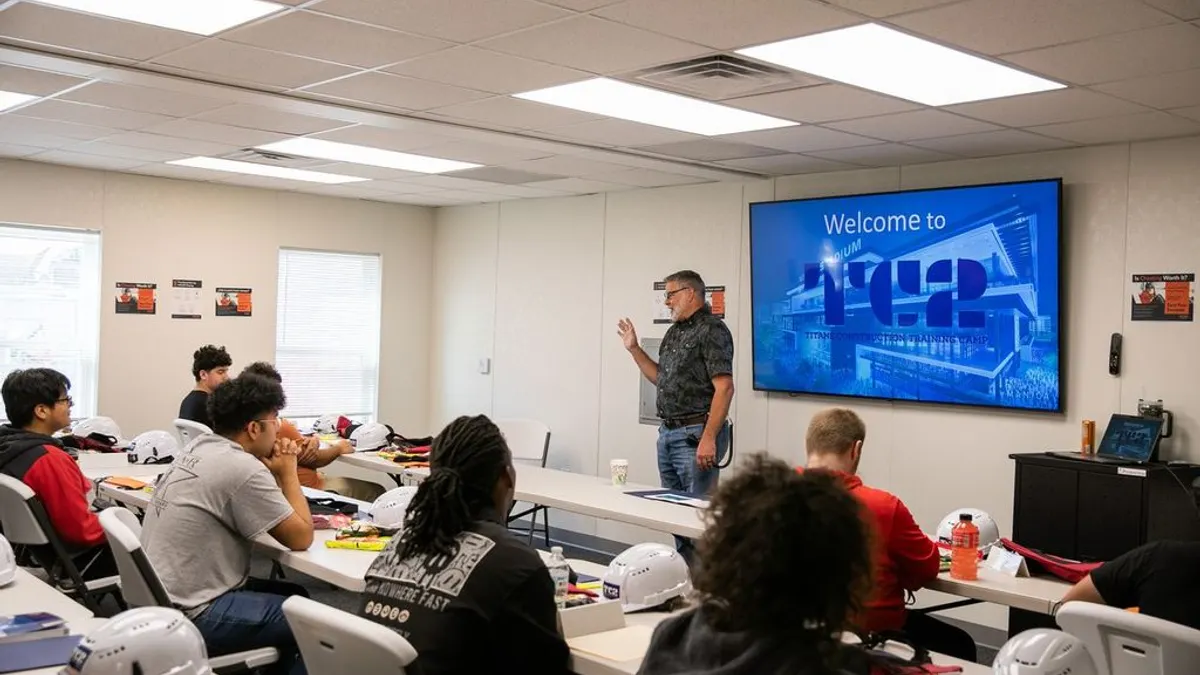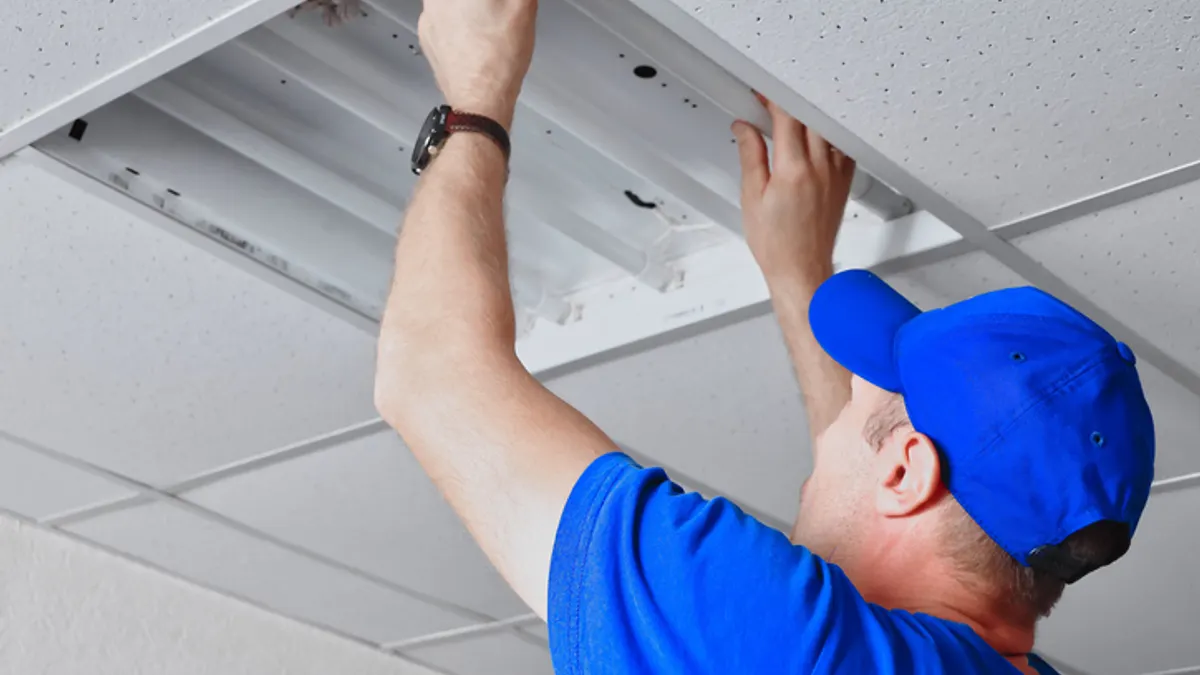Seventeen months after Bechtel pledged $7 million to the American Foundation for Suicide Prevention, the team is launching a branding campaign paired with a suicide prevention toolkit for contractors, it shared with Construction Dive.
Hard Hat Courage, the initiative built by the partnership along with a CEO advisory council, will seek to confront construction’s high rates of suicide and prioritize mental health alongside physical safety. The initiative will arm companies of varying sizes with mental health and suicide prevention resources and education, tailored to the building industry.
Reston, Virginia-based Bechtel’s donation to AFSP was the largest in the nonprofit’s history. Over five years, the funds will help the partnership meet its goal of reaching 500,000 workers on jobsites across the U.S.
“These new tools put help within reach — anytime, anywhere — so no one in our construction family has to face a mental health struggle alone,” said Brendan Bechtel, chairman and CEO of the firm. “It’s another step toward making mental health care as routine and accessible as a hard hat on the jobsite.”
Along with the CEO advisory group meetings, AFSP conducted outreach to dozens of construction organizations, leaders and workers at all levels. That helped its leaders understand lived perspectives and experiences alongside data, said Dr. Christine Yu Moutier, chief medical officer of AFSP.
“We’re really looking to contribute to culture change,” Moutier told Construction Dive. ”Really transforming how mental health and suicide, substance use can be approached in a similar fashion that the industry has been so successful at driving down physical injury and mortality, and applying that blueprint to the mental health and suicide framework.”
Resources and talks
As part of the Hard Hat Courage launch, AFSP has developed toolbox talks that contractors can bring to the jobsite. The guidelines for a short conversation aim to break down the stigma around suicide and mental health discussion, encourage workers to be more supportive as peers and educate on the warning signs to better incorporate mental health into jobsite safety.
In talking with advisors and Bechtel, Moutier said, the AFSP discovered stakeholders wanted to fit the discussions into the flow of the normal day-to-day on the job. Ideally, she said, AFSP will develop and share at least 52 toolbox talks.
The initiative also includes a toolkit for construction employers responding after a colleague dies by suicide. The documentation provides tips on building a crisis response team to prepare for such a tragedy, guidance for communicating with the entire company about the news and even a checklist for actions to take on a suggested one-month timeline.
Moutier said that though on an individual basis, contractors may not experience a worker death by suicide often, nonetheless, knowing how to react can make all the difference.
“The ramifications of not being ready for it or being caught unprepared is that it's discombobulating,” Moutier said. “People are in a mode of already feeling stressed.”
Responding properly can also ensure safer communication for other workers struggling with mental health or thoughts of suicide who may be impacted by the loss of a coworker, Moutier said.
“Suicide contagion is actually a real phenomenon that can occur,” Moutier said. “It occurs when vulnerable people are exposed to a peer suicide or a celebrity suicide's death is messaged by the media in a way that can draw vulnerable people closer to their wish to die.”
Knowing the right language can ensure company leaders can still look after the most vulnerable.
Being prepared, getting involved
Moutier said she hoped the initiative with Bechtel and the CEO advisory council could be a stepping stone for other industries, providing a blueprint for driving the conversation forward.
And the conversation has improved in recent years.
“The fact that it is happening across so many industries and so many organizations is very different than it was, say 15, 20 years ago, where there was still so much stigma that people actually weren't sure if we could talk about the topic even safely,” Moutier said.
For contractors that want to get involved, Bechtel hopes the awareness factor of the toolbox talks and Hard Hat Courage branding will spur them to take action, not just once, but repeatedly, incorporating the practice.
“We know that tackling mental health in construction is not a one-and-done effort,” Bechtel told Construction Dive. “It requires constant attention and better tools in the hands of those who need them most.”























